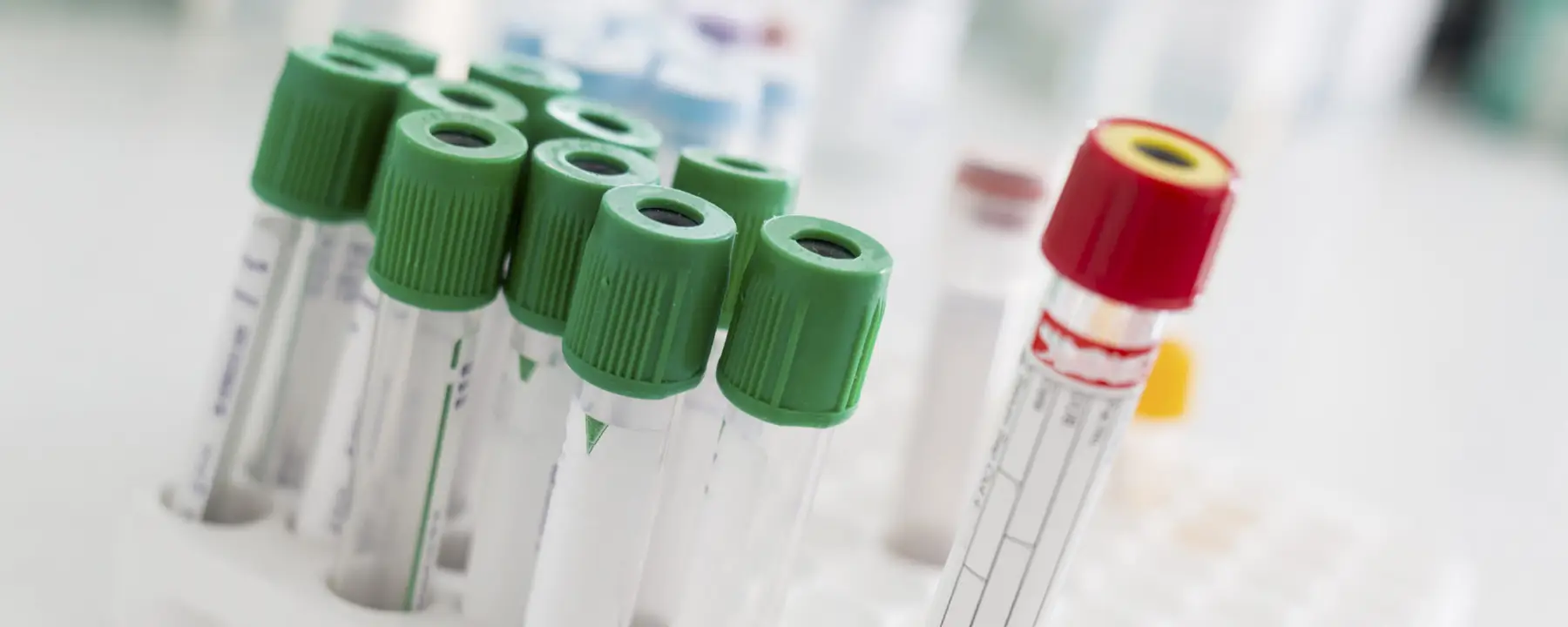Protecting the integrity of drug test results for federally regulated workplace programs through proficiency testing, inspection, and accreditation of forensic drug testing laboratories
Objective
Protect the integrity of drug test results for federally regulated workplace programs by managing the National Laboratory Certification Program (NLCP), administered by the Department of Health and Human Services (HHS).
Approach
The program inspects drug testing laboratories, challenges the labs with proficiency testing samples, identifies problem areas, and monitors corrective actions. The program also conducts or supports scientific studies to address concerns and improve scientific validity and reliability of forensic drug testing in certified laboratories.
Impact
As of 2022, the NLCP has accredited 147 laboratories across the U.S. and RTI has performed over 3,800 inspections. We also developed a web-based series of courses on analytical methods in workplace drug testing and provide annual training on new technologies, case studies, and study results from special projects.
Drug use in the workplace has serious effects on employee productivity, safety, and security, and can put the public at risk. As a result, employee drug testing programs have become a widely accepted preemptive tool to identify those who may be compromised by drug use.
Inaccurate or forensically unacceptable test results can lead to serious adverse consequences, including financial hardship for a wrongly implicated employee, legal liabilities, and questions about the integrity of workplace drug testing programs. Protecting both the employer and the employee is the ultimate goal of any drug testing program, which raises a challenge for forensic science laboratories and government oversight. All drug testing laboratories must themselves be tested to prove that their results are accurate, scientifically valid, and forensically sound.
Accrediting Drug Testing Laboratories through Proprietary Tools Aimed at Performance Measurement
Since 1987, RTI has supported the Department of Health and Human Services (HHS) by managing the National Laboratory Certification Program (NLCP). RTI conducts all aspects of the program, including:
- Review and assessment of laboratory applications
- Inspections of applicant and certified laboratories
- Design, preparation, distribution, and scoring of performance testing samples
- Identifying problem areas and monitoring corrective actions
These activities are designed to identify issues before they impact drug test results.
Our team verifies laboratory procedures, data, and documentation, drawing on our extensive experience in forensic toxicology, which includes management and bench-level experience in HHS-certified drug testing laboratories. We also assembled and manage approximately 100 expert consultants from academia, the military, and forensic toxicology laboratories to serve as NLCP inspectors.
From the beginning of the program to 2022, the NLCP has accredited 147 Laboratories across the U.S., two in Canada, and one Initial Instrumented Testing Facility (IITF) in Canada. We have performed over 3800 inspections and shipped more than:
- 163,000 Urine PT Samples
- 15,200 Oral Fluid PT Samples
- 3,200 Hair PT Samples
Expansion of the Program
RTI staff have helped the Substance Abuse and Mental Health Services Administration (SAMHSA) update the HHS Mandatory Guidelines throughout the life of the program. Most recently, RTI staff have assisted in the development of guidelines that expand the program to include testing of oral fluid specimens.
Workplace drug testing is a constantly developing field driven by both technological advancements and changes in drug use patterns of federal employees. RTI proactively evaluates the need, suitability and feasibility of adding new technologies, instrumentation, and analytes to the NLCP program, in support of SAMHSA decision-making. RTI also manages special projects and applied scientific studies to investigate emerging testing issues.
Protecting Employers, Individuals, and the Public by Establishing the Gold Standard in Laboratory Certification
The HHS-certified laboratories accredited under the NLCP are known as the “gold standard” in the drug testing industry. In fact, many states require drug testing to be performed by HHS-certified laboratories and many private sector employers also choose these laboratories to test job applicants and employees.
We have been the government’s sole contractor for the NLCP project since its inception because of our ability to meet SAMHSA’s goals of ensuring accurate testing and maintaining the reliability of the entire drug testing process, thus helping reduce the impact of substance abuse on America’s communities.
Turning Knowledge into Practice
We provide annual training on topics including new technologies, case studies and study results from special projects open to all HHS-certified laboratory staff and NLCP inspectors. Additionally, we have developed a web-based series of courses on analytical methods in workplace drug testing. The NLCP publishes a newsletter Drug Testing Matters on topics written by subject matter experts that are of interest to the drug testing community. As of 2022, the NLCP has published 29 of these newsletters. To subscribe, use the form below. For more information about the program, contact us using the form or at 919-541-7242.
Learn more about RTI's laboratory quality assurance and standardization services.
Learn more about the NLCP
To subscribe to the newsletter, use the email subject Subscribe-DTM.
- Substance Abuse and Mental Health Services Administration (SAMHSA)





